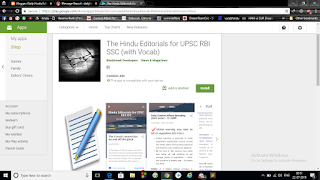Alien versus alien: On Assam Citizenship Bill
👉Disquiet in Assam should convince the Centre to reconsider the new Citizenship Bill👈
In Assam, where illegal migration, in fact as well as in exaggeration, has defined the political landscape since the 1980s, public hearings and meetings held by a Joint Parliamentary Committee over the Citizenship (Amendment) Bill, 2016, have inevitably taken place in a charged atmosphere. Parties and civil society groups have argued that the Bill provides legitimacy to Hindus who have migrated from Bangladesh post-1971. It precludes individuals from six religious minorities from three “Muslim-dominant countries” (Afghanistan, Bangladesh and Pakistan) from being defined as “illegal immigrants” under the Foreigners Act, 1946. The intent behind this Bill, promised by the BJP in the run-up to the 2014 general election, is to clear a path to citizenship for minorities persecuted in the three countries. The National Register of Citizens, on the other hand, does not distinguish migrants on the basis of religion and regards all post-March 24, 1971 migrants, irrespective of their religion, as illegal aliens who need to be deported. Clearly, the Bill is seen by detractors to be breaking the general consensus on the NRC forged after years of political differences and legal challenges to the Assam Accord, of which the ongoing exercise to update the register is an outcome. Chief Minister Sarbananda Sonowal has responded saying his government will continue to protect the rights of the citizens, and hinted that the JPC should take the detractors’ views on board.
The Bill is indeed discriminatory and problematic in limiting accelerated citizenship to non-Muslims. As the case of the Rohingya highlights, Muslims in neighbouring countries who are fleeing persecution are being denied refuge in India currently. Besides, the detractors, although some of their objections stem from a native chauvinism, have a point. The Bill conflates the definition of migrants, people who shift voluntarily, with that of refugees, who are forced to do so under duress giving them a claim to humanitarian protection. The NRC puts the onus on migrants to prove their status of residence prior to 1971 based on a series of documents that would lead to registration as a citizen. The Bill seeks to bring in considerations of religious identity. There are unresolved issues with the NRC process as well. There is the question of modalities of deportation, which would involve negotiations with Bangladesh. As of now Assam has six detention centres for illegal migrants. If the NRC process identifies more illegal aliens for deportation, they would have to be detained in such centres and there is no knowing how long they would have to stay there. Besides, the implementation of the Bill will mean non-Muslims will not be subject to these steps, thereby clearly discriminating against Muslims identified as illegal aliens. The Centre needs to apply much more thought before pushing the Bill, for its contradictions in Assam and for its larger religious assumptions.
To Download this editorial in PDF version CLICK HERE

Comments
Post a Comment
share your views